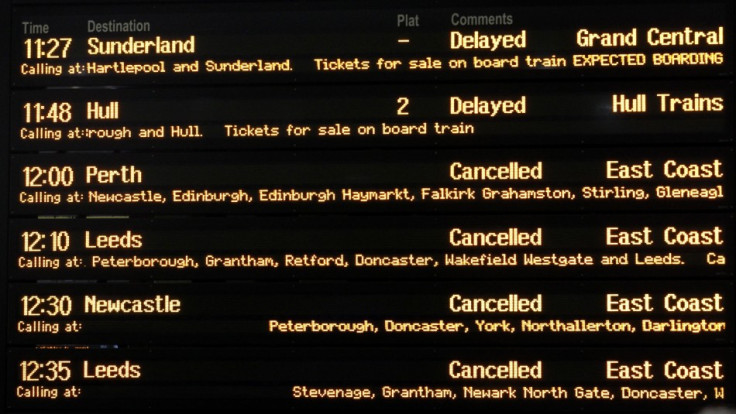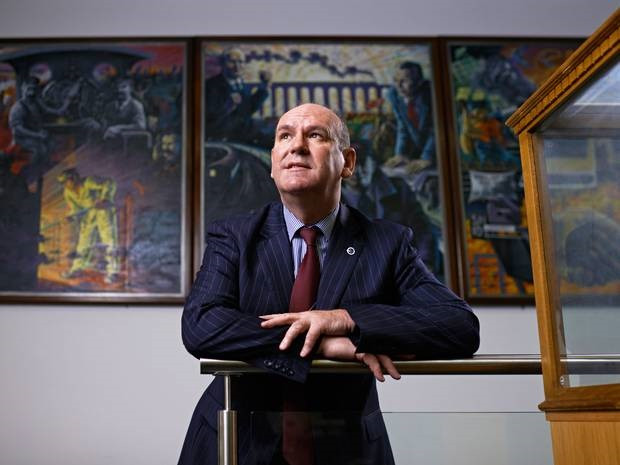Why Britain Must Nationalise its Railways Again Like Margaret Thatcher Wanted

Rail privatisation has proved to be a disaster for this country.
Even Margaret Thatcher, that arch advocate of privatisation, admitted that the privatisation of the railway was "a privatisation too far".
It was a foolish, ideologically-driven, policy by John Major's government which has, each year for the last twenty years, sold Britain short.
You can see the result every time you buy a ticket, and every time you get on a train. We have suffered soaring fares – soaring way beyond the rate of inflation – with hard-pressed passengers being forced to pay more, and ever more, money to get to work so the privatised train operating companies can squeeze 'more profit from the punters' and make more money for their shareholders.
When wages are falling or, at best, standing still, that is an absolute disgrace. Private companies should be about investment and risk.
But there is no investment, and there is no risk, for the privatised train operating companies on the railway.
The taxpayer, through the government, makes the investment. And the taxpayer, through the government, takes all the risk.
Remember when National Express handed back the keys to the East Coast main line in 2009? They just walked away and left the franchise in chaos.
It has, since then, been successfully run in the public sector. The East Coast delivers a much better deal to the public purse – to each and every taxpayer in Britain – and has been a key tool against which we can measure the success (actually, the failure) of the privatised train operating companies (TOC).
Each year these companies move hundreds of millions of pounds offshore in dividends – money which could and should be kept in this country to hold down fares and help investment in Britain's railway network.
Every pound of profit for a TOC is a pound that leaves the industry. A pound that could be used for investment in infrastructure. Or a pound that could be used to reduce fares for passengers.
Or, like the East Coast, which has returned more than £600m to the Treasury since 2009, it's a pound that can be spent on Britain's schools, hospitals or other services.
Because we believe Britain's railways are a public service for all, not an opportunity for a few people to make a private profit.

People who believe in privatisation usually talk about 'competition' and the 'free market'. But there is no competition – not in any meaningful sense – on the railway and there is no market, free or otherwise.
So the rules simply don't apply. That's what Mrs Thatcher – yes, Mrs Thatcher! – understood, even if her successor Mr Major was unable to grasp this simple economic fact of life.
We want to build a better railway for everyone in Britain. And that means running the railway as a public service under public ownership.
It is a curious, and savagely ironic, fact that successive Conservative governments, which are, notionally, against nationalised industries, have no problem with the state running the railway in this country, as long as it's someone else's state.
Because most of the TOCs – the privatised train operating companies – are ultimately owned by French, German and Dutch state-owned railways.
The Tories – and New Labour – were happy for the public to benefit, financially, as long as it wasn't the British public. Which was, and is, perverse...
Privatisation has, demonstrably, failed to deliver. That's why we think it's time to bring the railway back into public ownership so that, like the East Coast, the railway can deliver a proper service to the public and bring money back to the exchequer.
That way we will build a properly-integrated, rather than fragmented, publicly-owned, and publicly accountable, railway to build a better Britain.
A railway for passengers, a railway for business, and a railway, yes, for the people who work in this vital industry.
Polls show that even most Conservative voters now want a return to a publicly-owned railway in this country.
A publicly-owned railway is popular right across the political spectrum, with people who vote for every political party. And it's easy to see why.
Mick Whelan is general secretary of Aslef, the train drivers' union.
© Copyright IBTimes 2025. All rights reserved.






















